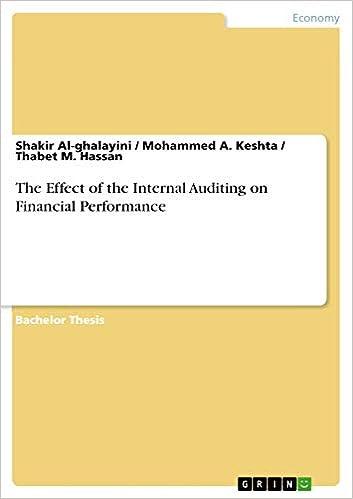Question
Company 1 is a logistics company with 90 trucks and 180 trailers. They have a mutual business relationship with company 2 who is an international


Company 1 is a logistics company with 90 trucks and 180 trailers. They have a mutual business relationship with company 2 who is an international parts company and is one of their largest clients. Company two has approached with an idea to expand their operations, but Company 1 management is worried about the available capacity to service the request including routes, potential risks, and profitability with the proposal.
Company 2 want an extra 2 loads per week. And would require 1,500 round-trip kilometers.
1. Company 1 does a capacity analysis and concluded they can handle only one of the two additional loads with the existing capacity but an additional rig is required to handle the second load. Assume Company 1's management chooses to purchase an additional truck and trailer that can serve the needs of Company 2's needs. The incremental fixed costs with buying the additional equipment is $50,000. Company 2 then agrees to pay $2.20 per kilometer for both loads if Company 1 signs a five-year agreement. What is the annual number of Kilometres required for Company 1 to break even, assuming they purchase the new truck and trailer rigs? And what is the expected annual increase in profitability from the new Company 2 contract ($2.20 per KM) (Use 52 weeks per year in calculations)?
2. Company 1 has good relationships with independent contractors, although a high up manager is reluctant to use them. Another possibility for expanding capacity to meet the second load requirement is to outsource this second load required by Company 2, to Company 1's most reliable independent contractors who have quoted a rate of $1.65 per kilometer. As with question 1, assume Company 2 would agree to pay $2.20 per kilometer if Company 1 would sign a five-year contract and that Company 1 would use their own capacity to cover one of the weekly loads. This option would result in incremental fixed costs of $20,000 per year. These costs would include insurance, rental trailers, certain permits, salaries and benefits of garage maintenance, and billing and salaries. How many annual kilometers are required for Company 1 to break even if the second weekly load is outsourced to the independent contractors? What is the expected annual increase in profitability from Company 2's contract? What are your conclusions?
Exhibit 1: Income fron Operations COMPANY1 Income From Operations For the Year Ended June 30th, 2017 Year Ended 2017 Revenue Line Haul Fuel Surcharge 20,925.280 4,950,160 450.120 26,325 ,560 Variable Expenses Insurance Fuel Oil Lubricants Tolls Parts&Small Tools Hourly Wages - Drivers Trailer Pool Expense 675,120 8,775,190 112,700 112,550 787,630 4,950,160 255,120 15,668.470 Fixed Expenses Insurance: 112,620 225,010 226,000 224,500 111,750 2,137,500 675,000 1,012,520 113,500 111,520 1,013,000 562,500 112,350 337,510 General Liability Physical Damage Worker's Compensation Health Insurance Security Salaries & Benefits-Garage Salaries & Benefits Office Bad Debts Expense Permits Rental Equipment Payroll Taxes Accounting Fees& Supplies 6,975,280 Income from Operations During the twelve months ended June 30th, 2017 billable kilometres totalled 11,250,000Step by Step Solution
There are 3 Steps involved in it
Step: 1

Get Instant Access to Expert-Tailored Solutions
See step-by-step solutions with expert insights and AI powered tools for academic success
Step: 2

Step: 3

Ace Your Homework with AI
Get the answers you need in no time with our AI-driven, step-by-step assistance
Get Started


